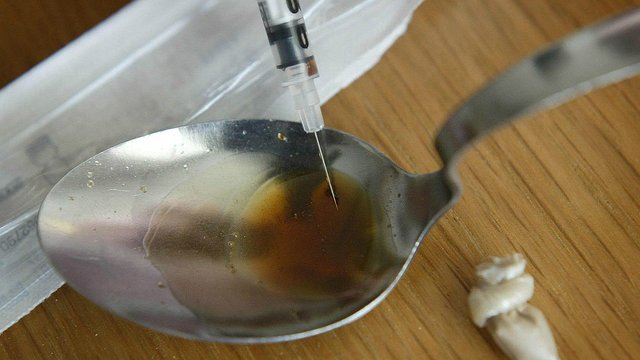On Air Now
The Capital Weekender with Kem Cetinay 7pm - 10pm
21 June 2017, 10:06 | Updated: 21 June 2017, 10:11

A site for the UK's first unit for addicts to take drugs under supervision has been identified by officials.
The proposed Safer Drug Consumption Facility and Heroin Assisted Treatment service in Glasgow would allow the medically-supervised injection and inhalation of drugs.
It aims to tackle drug-related deaths, the spread of infections among users and the amount of needles and injecting equipment left in public areas.
Members of the Glasgow City Integration Joint Board (IJB) - made up of councillors, police and health providers - are discussing a report on progress to develop the facility on Wednesday.
A site has been identified in the city centre between Trongate, Saltmarket and the River Clyde.
It would have a maximum of 12 individual injecting booths and a small drug inhalation room, although the final number of booths and the feasibility of the inhalation room would depend on the floor space available.
The facility would open from 9am to 9pm seven days a week.
The provision of a separate Heroin Assisted Treatment (HAT) service in the premises, which involves doctors prescribing diamorphine, will also be discussed.
It is estimated the operating costs of the facility would be £2.36 million per year.
The proposals arose after a steep rise in the number of HIV cases among people who inject drugs.
According to a report earlier this year, 78 new HIV cases diagnosed in Glasgow since 2015 among drug injectors could potentially create lifetime costs to the health services of £28 million.
Described as ''fix rooms'' or ''shooting galleries'' by some, the controversial plan has been considered elsewhere in the UK but not implemented, though they are already in operation in some European cities.
The IJB report suggests the establishment of the facility would benefit Glasgow.
It states: "There is likelihood of a positive economic impact within health, social care, criminal justice and police domains, through effective engagement with a population which currently has a high utilisation of these services.
"There is also potential for wider economic benefit through improved public spaces in Glasgow city centre, resulting in improved public amenity and less adverse impact of public injecting and acquisitive crime on businesses.''
However project chiefs will have to ask the Lord Advocate for an exemption from the 1971 Misuse of Drugs Act to establish the centre.
The IJB report said it is not yet possible to give a clear indication of when the premises would be ready to open, however it will provide another update in November.
A Crown Office spokesman said: "Misuse of drugs legislation remains a reserved issue and any such scheme has a number of different policy considerations that the Scottish Government will want to consider in detail.
"The Lord Advocate has yet to receive a detailed proposal in relation to any such scheme.''